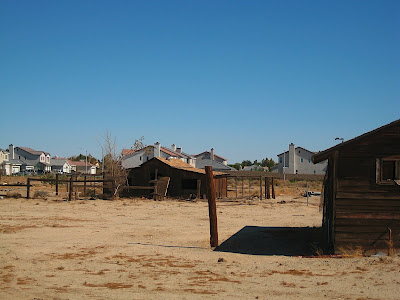http://greeneconomics.blogspot.com/
Gary, Raphael and Stuart do a painstaking job of combining multiple data sets to get a sense of the wealth effect of housing, and find that it is real; the implication is that it could be a substantial drag on consumption for years to come.
When combined with the fact that consumption has been an extraordinary share of GDP (around 72 percent, which compares to a historic norm in the high 60s) and his been funded with home loans and consumer debt, it is highly likely that the next recovery will be driven from something other than consumption--such as exports or capital goods spending (for exports).
As for cooperation, let me point to a post I wrote around a year ago:
...if one looks at the top 50 research Universities as measured by The Center for Measuring University Research Performance at Arizona State, the leading metropolitan area for number of top research institutions is not Boston, nor is it Chicago, Philadelphia, or New York. It is LA, which has four in the top 50 (UCLA, USC, Cal Tech and UC-Irvine). If one stretches another 100 miles or so, UC-San Diego and UC-Santa Barbara get added to the mix.
Southern California rarely gets credit for being an intellectual mecca, but after spending a pleasant morning at UCLA and a pleasant afternoon at USC last week, I couldn't help but think that it is. Then again, Thomas Mann, Arnold Schoenberg and William Faulkner all managed to enjoy life in LA. Randy Newman might have been onto something...
It is nice to be here.



